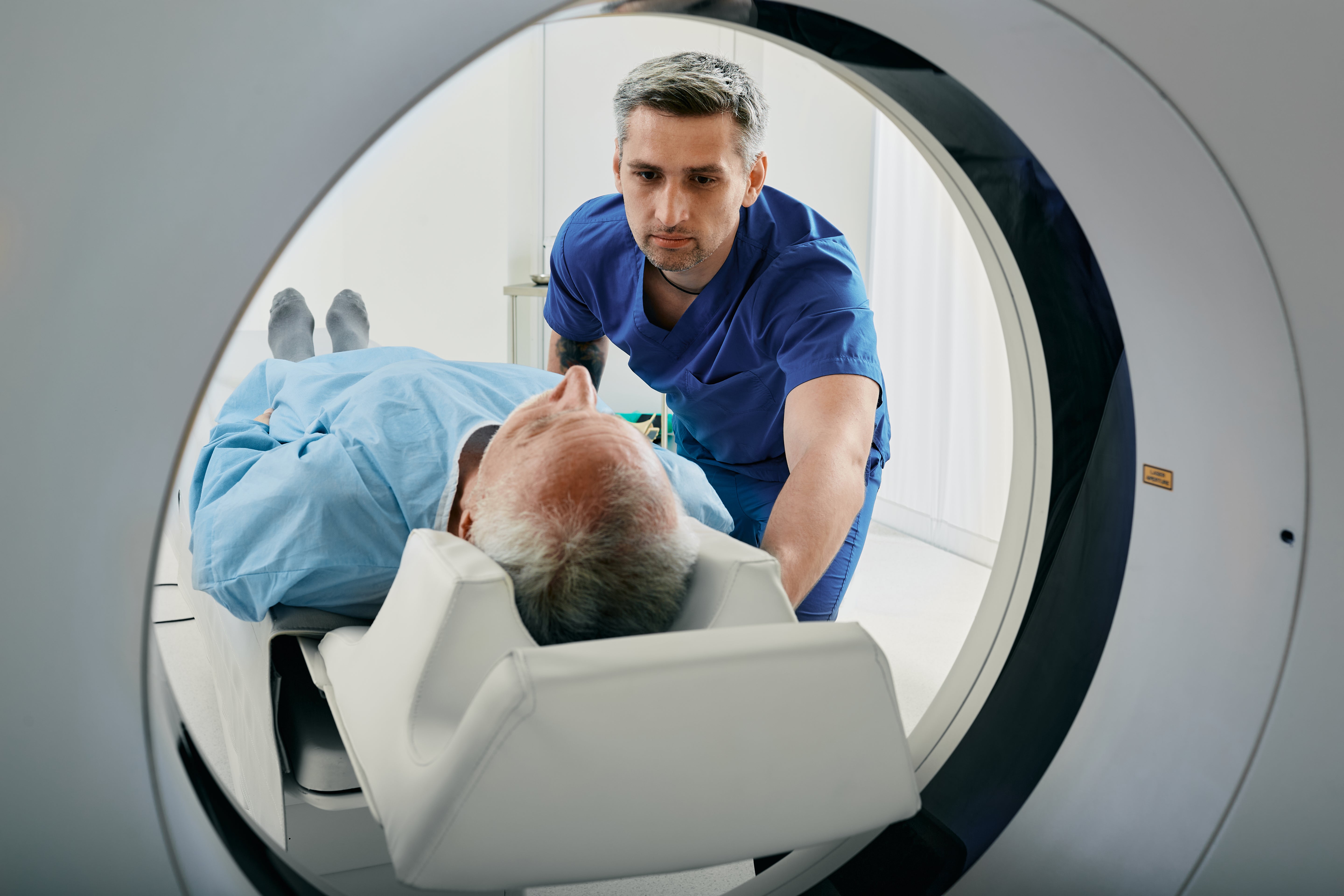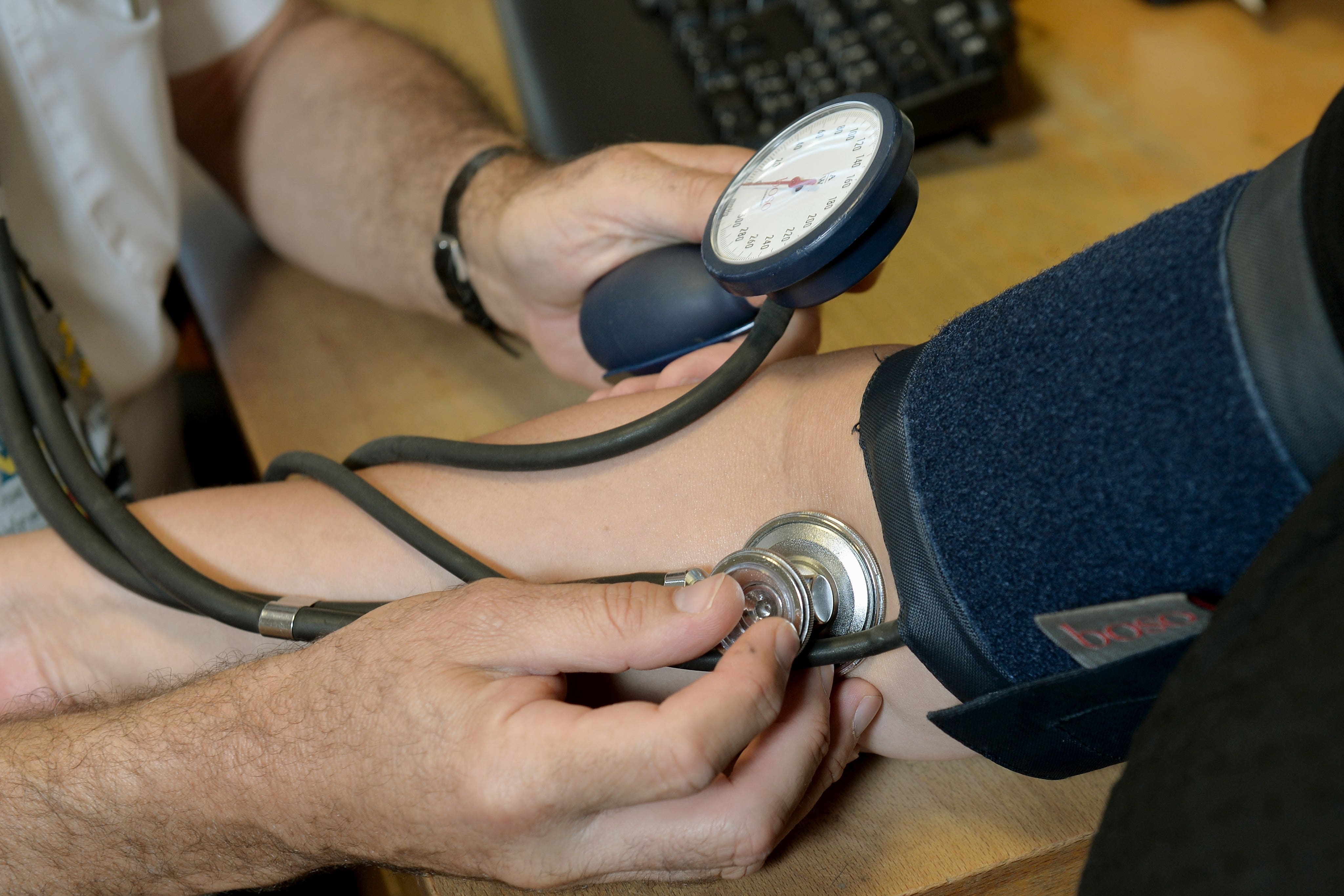New 10-minute scan ‘can detect and cure most common cause of high blood pressure’
Findings solve a 60-year-old problem, researchers say

Your support helps us to tell the story
From reproductive rights to climate change to Big Tech, The Independent is on the ground when the story is developing. Whether it's investigating the financials of Elon Musk's pro-Trump PAC or producing our latest documentary, 'The A Word', which shines a light on the American women fighting for reproductive rights, we know how important it is to parse out the facts from the messaging.
At such a critical moment in US history, we need reporters on the ground. Your donation allows us to keep sending journalists to speak to both sides of the story.
The Independent is trusted by Americans across the entire political spectrum. And unlike many other quality news outlets, we choose not to lock Americans out of our reporting and analysis with paywalls. We believe quality journalism should be available to everyone, paid for by those who can afford it.
Your support makes all the difference.A new 10-minute scan could make way for the most common cause of high blood pressure to be detected and cured, new research has suggested.
Using a new type of CT scan, doctors were able to cure high blood pressure by lighting up nodules (tiny growths) in a hormone gland cure and removing them.
The patients were treated at Queen Mary University of London, St Bartholomew’s Hospital, London and Cambridge University Hospital.
According to the study, one in 20 people with high blood pressure have these growths.

The nodules glow shortly after an injection is given and highlight an obvious cause for the condition, the scientists said.
The novel findings solve a 60-year problem of how to detect the hormone producing growth without a difficult procedure that is only available in a handful of hospitals, and often fails.
The research also found that, when combined with a urine test, the scan detects a group of patients who come off all their blood pressure medicines after treatment.

Morris Brown, co-senior author of the study and professor of endocrine hypertension at Queen Mary University of London, said: “These aldosterone-producing nodules are very small and easily overlooked on a regular CT scan.
“When they glow for a few minutes after our injection, they are revealed as the obvious cause of hypertension, which can often then be cured.
“Until now, 99 per cent are never diagnosed because of the difficulty and unavailability of tests. Hopefully this is about to change.”
Doctors from used the new scan on around 128 people after finding that their hypertension (high blood pressure) was caused by a steroid hormone, aldosterone.
The scan found that in two thirds of patients with increased levels of the hormone, this is coming from a benign growth in just one of the adrenal glands, which can then be safely removed.
The scan uses a very short-acting dose of a radioactive dye that only sticks to the nodule that produces the hormone.
Researchers suggest the scan was as accurate as the old catheter test, but quick, painless and technically successful in every patient.
Until now, the catheter test was unable to predict which patients would be completely cured of hypertension by surgical removal of the gland.
However, the combination of the new scan and urine steroid test identified 18 of the 24 patients who achieved a normal blood pressure without taking their prescribed drugs.
The research, published in Nature Medicine, was conducted on patients at Barts Hospital, Cambridge University Hospital, and Guy’s and St Thomas’s, and Universities of Glasgow and Birmingham.
It was funded by the National Institute for Health and Care Research (NIHR) and Medical Research Council (MRC) partnership, Barts Charity, and the British Heart Foundation.
According to the NHS, around a third of adults in the UK have high blood pressure, but many will not realise it.
In most people with the condition, the cause is unknown, and it requires life-long treatment by drugs.
Previous research by the group at Queen Mary University found that in 5-10 per cent of people with hypertension the cause is a gene mutation in the adrenal glands, which results in excessive amounts of the steroid hormone, aldosterone, being produced.
Aldosterone causes salt to be retained in the body, driving up the blood pressure.
Patients with excessive aldosterone levels in the blood are resistant to treatment with the commonly used drugs for high blood pressure, and at increased risk of heart attacks and strokes.



Join our commenting forum
Join thought-provoking conversations, follow other Independent readers and see their replies
Comments